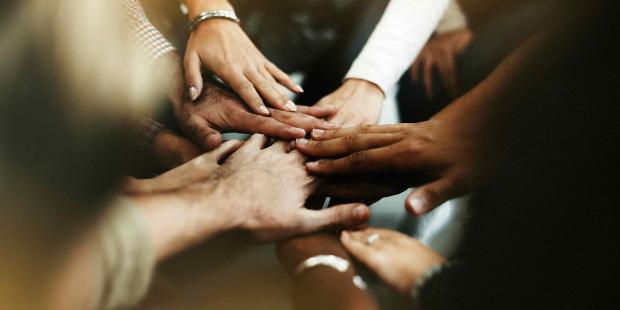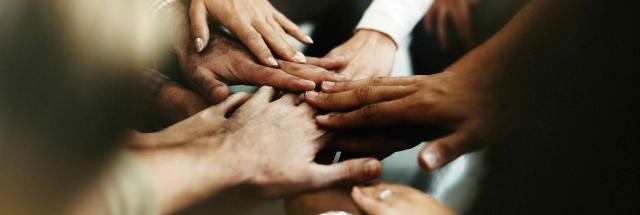
Freepik.com
Diversity is an prominent issue for discussion not only in Indonesia, but also throughout the world. Looking at diversity in Indonesia, one of the hottest topic around diversity are religion and belief. There are many stereotypes that can be observed from religious practices. For example, people who worship in mosques means that they are moslem, people who go to church are Christians, and other religions with their respective places of worship and ways to worship. These are often labelled and associated with certain religions or beliefs.
In addition to religious stereotypes, there are still many other issues related to diversity in Indonesia that needs attention such as gender, disability, ethnicity, customs, and culture. Unfortunately, we still can’t live up to our nation’s Moto “Bhinneka Tunggal Ika” (which means unity in diversity) that is always echoed as a form of unity in spite of the many differences in Indonesia.
The number of cases of intolerance and discrimination eventually foster a form of radical thinking that can endanger a particular group. This is because we often only judge the difference from what we see and immediately conclude from the behavior that has been done, even though there are many aspects that influence this. When we see differences in others, we forget that we ourselves have to do introspection of what is happening within us.
Inner diversity and inclusion discusses how we see the diversity and understand what occurs within us first before seeing others. When we want to create an inclusive environment and accept that everyone has their own rights and uniqueness, we must start from what is within us. Do we feel accepted and appreciated? Do we understand the diversity that exist within us? Do we love ourselves?
Pincus (2011) explains that if we want to see diversity, it will be very easy, just collect people from various religions, gender, and other backgrounds in one room, and invite them to talk about their identity. However, if you want to see how we judge the differences from others, whether it's a positive or negative assessment, the most important thing is to judge ourselves first. We must check ourselves first for traumas, unpleasant events, fear, or other experience that can influence the way we see other people.
Both negative qualities such as hate, jealousy, lust, lazy and positive attributes such as punctuality, empathy, honesty, and others show an adaptive form of life. However, we position these as principles to protect ourselves and as a form of defense to assume and judge others that don’t have the qualities we see in ourselves.
When discussing the human mindset, there are many concepts, images, tactics, and ways to reduce or avoid elements we do not want. This eventually leads to denial, procrastination, lying, violence, projection, obsession, stigma, prejudice, addiction, and other conditions that can destroy us. When a part of ourselves is rejected or not loved because there is no support from the environment, we live in disharmony. This can lead to explosive bursts of rebellious behavior
Discussing Shadow's theory from Carl Jung, each individual has a shadow that is part of the self that wants to be understood, accepted, and healed. However, we need to be careful because the shadow is the part that is buried deep. We can call these shadows a dark side of us. Imagine if a room is only filled with shadows, the room will be pitch black and we don't know what is in the room, we can only assume and have an opinion.
Conversely, if the room has a shadow because there is a light that illuminates the room, we can see clearly what is in the room. If we understand well what happens in us, we will be able to understand what is happening around us, but if not, then we will lose direction and be easily influenced by assumptions and stigma.
Of course, change is not an easy job, but isn't self-welfare also important? The start of a change will never be easy. We need to be brave to step into new habits and create new goals in life. So, we must repair and understand ourselves first before we turn to help others. This is because we need to give ourselves the opportunity to accept all the diversity within ourselves until finally, we can accept the diversity in others.
In order to create an inclusive environment in Indonesia, especially to reduce cases of intolerance and radical understanding that can lead to extremism, we need to see diversity from various points of view. Like the Shadow concept put forward by Jung, when we have light in a room, we have the knowledge, education, and empathy to see around us better. Then there is no negative fear or assumptions about our environment. See something from a new perspective, it's time to learn to understand others starting with how we think. Variety means plural, it means our thinking patterns must also be branched and plural.
We must learn to empathize with others who may not have the same privilege as the majority of people. Let's give support, embrace, and provide moral education to people in need. Although extremism occurs due to structural gaps, when the surrounding environment has a positive influence, things like radicalism and extremism can be reduced. It is expected that in the next generation that building trust, empathy, and tolerance is important for the progress of the nation and for minimizing prejudice and violence against certain groups.
Author:
Lumban Tobing, Hobie Fauzan
Mentor Trust Building Bandung
Translated by:
Ari Budi S

